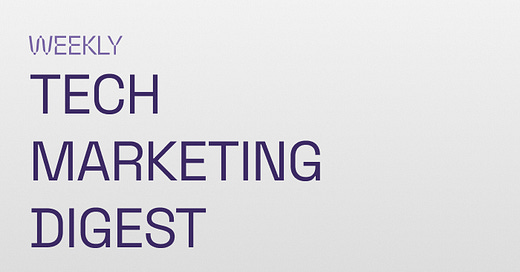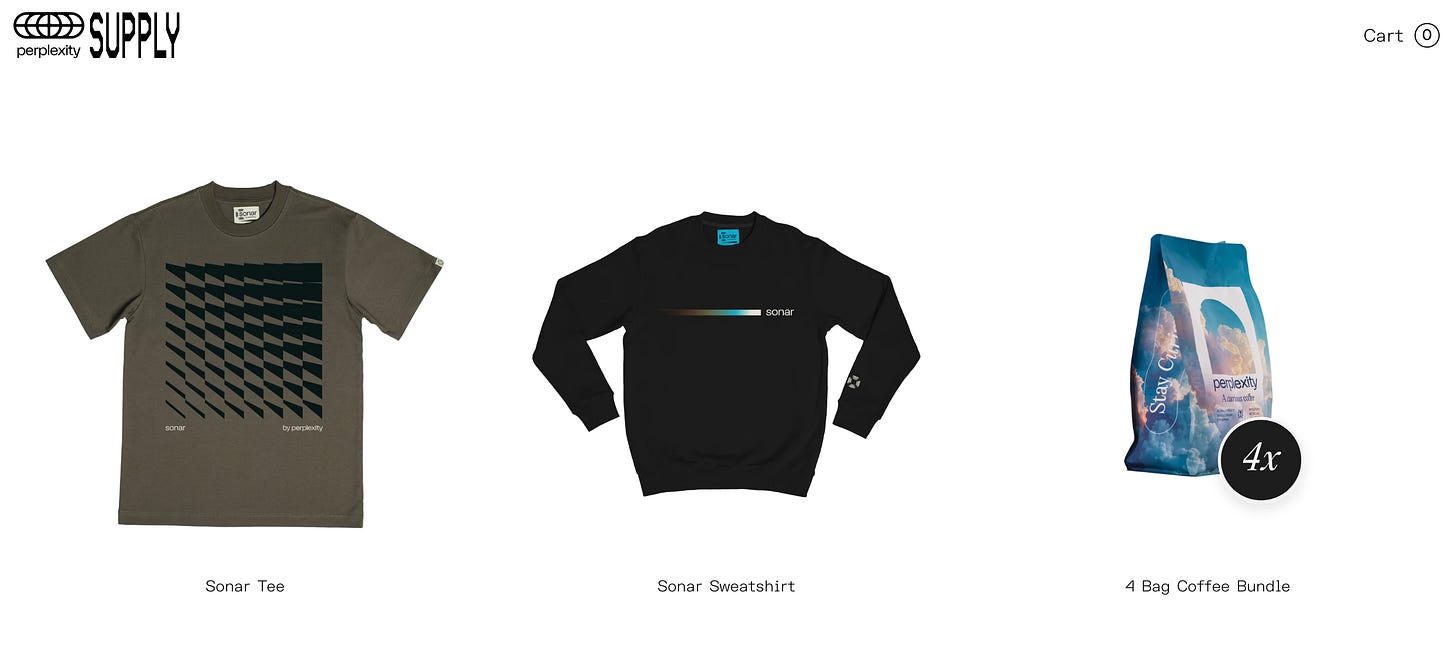#2 Your Next Killer Move Isn’t a New Feature — It’s Merch.
Still innovate your product, but merch is important - here's why.
Hi friends,
Welcome back to our weekly newsletter!
Last week, we explored how brands use cursed moments and leverage other lifestyle brands to gain attention in the middle of social platform chaos. Although marked as effective, short-term campaigns are not long-term strategies for community building.
As of 2024, there are approximately 70,000 AI companies worldwide. The United States leads the global AI race, with the biggest number of AI startups – about 17,500 (25% of all). This week we will dive deeper on how tech companies are mastering the art of appearing at offline touchpoints, specifically through brand merch to reign the market. And meanwhile how companies are hiring celebrities to further strengthen their brand identities online.
Modern subcultures are increasingly fluid, overlapping, and continually evolving. Identity artifacts, such as lifestyle merchandise, serve as boundary objects—items that hold shared meaning across different communities, fostering a sense of belonging and consensus. The feeling of being in a "fam".
Turn your early adopters into walking billboards
Start A Merch Line On Day 1.
A subtle change in the industry is the use of merch stores to build community and turn early adopters into walking billboards of social proof. In the last year, we have seen companies like Perplexity, Hugging Face, and Anthropic launch or tease limited-edition merch stores. They’re not the traditional corporate merch with insider slogans that only Devs understand. They’re aesthetic, eye-catching and relatable products that adds character and utility to Millennials and Gen-Z’s lifestyles. Merch has become a way for people to make sense of it all. It’s not just about remembering a name—it’s about building trust using affiliate connections in our minds.
Someone who admires fine art and literature might see Claude’s serif fonts, orange palette and simple yet sophisticated LLM and think, “This feels like Hermès for AI.”
Or imagine a Berlin graphic designer who probably dabbles in Web3 also looks at Perplexity’s sleek, minimalist vibe and think “They know I’m a stoic guy who daydreams.”
These associations aren’t just aesthetic—they’re emotional shortcuts. Merch gives people a way to categorize brands (and it’s benefits) in their heads, not just by what they do, but by what they represent and how it’s delivered. It’s a tangible reminder of the values, vibes, and communities we want to be part of.
Creating Cult Values
Product differentiation is moving away from features to less technical lanes like Pricing and Branding. Companies are not just competing for one time eyeballs, but aiming to secure strong LTV from consumers. When every product is either $20 per month or free, the landscape for product discovery is heavily skewed towards digital word-of-mouth, virality and paid ads.
Aside from billboards and hyperlocal subway takeovers, the offline landscape is barren when it comes to product marketing. Stickers on laptops were once a subtle way to flex the company one works for or products you believe in. However, between mass layoffs, remote work and asynchronous office times, no one’s checking for your new sticker. The question many tech companies are facing is “How can I turn my early adopters into evangelists? How can I get consumers to believe that my product is The One?”
While brands like Hugging Face and X have limited output, Perplexity has been able to carve a solid community of early adopter evangelists by pushing their branding further than the rest. We immediately notice their Apple-inspired slogans like “Know It all” and “Where Knowledge Begins”, even the Yeezy-inspired naming behind their store “Perplexity.Supply”. They have gone beyond the stickers and t-shirts of old to offer hoodies and Perplexity-branded Coffee Beans. These bold and audacious product offerings make it clear to potential users that Perplexity has a target audience in mind. Their store is a way of telling consumers that they are both a product, a lifestyle. We’re going to look at why this is important for LTV in a future deep dive, but here is an example of how Nothing, a hardware company, manages to win their users with collectible merch.
Merch stores for Tech brands means open-sourcing company swag making it so that consumers can show their allegiances IRL. Product-minded merch can even lend itself to spontaneous UGC moments when use effectively. We’re living in a “work-in-public” renaissance and that means brands need to show up beyond the laptops and workspaces. Whether grinding at coffee shops or blowing off steam at weekend music festivals, the brands people see and recognize in the wild will have an effect on social proof for future consumers. In order to create a moment for product discovery, you need product intrigue and communities are a big part of that. No matter how many chips a company can boast, being seen as cool or relevant will still be key factors in converting future customers.
Recent marketing strategies reveal that both Meta and Perplexity AI are enlisting well-known celebrities to humanize their typically opaque tech brands. This approach aims to make their products more relatable and appealing to mainstream audiences. As the AI market becomes increasingly competitive, companies are innovating their marketing tactics to attract users and encourage investment in their tools, signaling an intensified race to capture widespread adoption.
Meta RayBan’s Star-Studded Super Bowl Ad
In a bid to recapture the cultural zeitgeist and assert its position in the competitive AI market, Meta's Super Bowl campaign for its Ray-Ban smart glasses features actors Chris Hemsworth and Chris Pratt, along with Kris Jenner, showcasing the glasses' AI capabilities in a museum setting. This high-profile marketing strategy underscores Meta's commitment to making its smart glasses a mainstream success. LINK
Perplexity Hires Celebrity as Chief Security Officer
Perplexity AI has subtly hinted at a partnership with comedian Jimmy O. Yang, known for his role in HBO's "Silicon Valley," appointing him as their Chief Security Officer. While details remain scarce, this move suggests Perplexity's intent to infuse humor into their brand image. Speculation arises that they may unveil more during the Super Bowl, especially as they are currently part of the bidding effort for TikTok's U.S. operations, aiming to enhance their cultural footprint. LINK
Sony Glasstron (2000) Just a reminder, there's nothing new under the sun.
We break down the wins—and the misses—of top consumer tech brands.
Expect deep dives, cultural signals, and community-driven insights that go way beyond the usual GTM playbooks.
Reach out: mo@hybrid-rituals.com
Agency: www.hybrid-rituals.agency
Media Platform: www.hybrid-rituals.com












